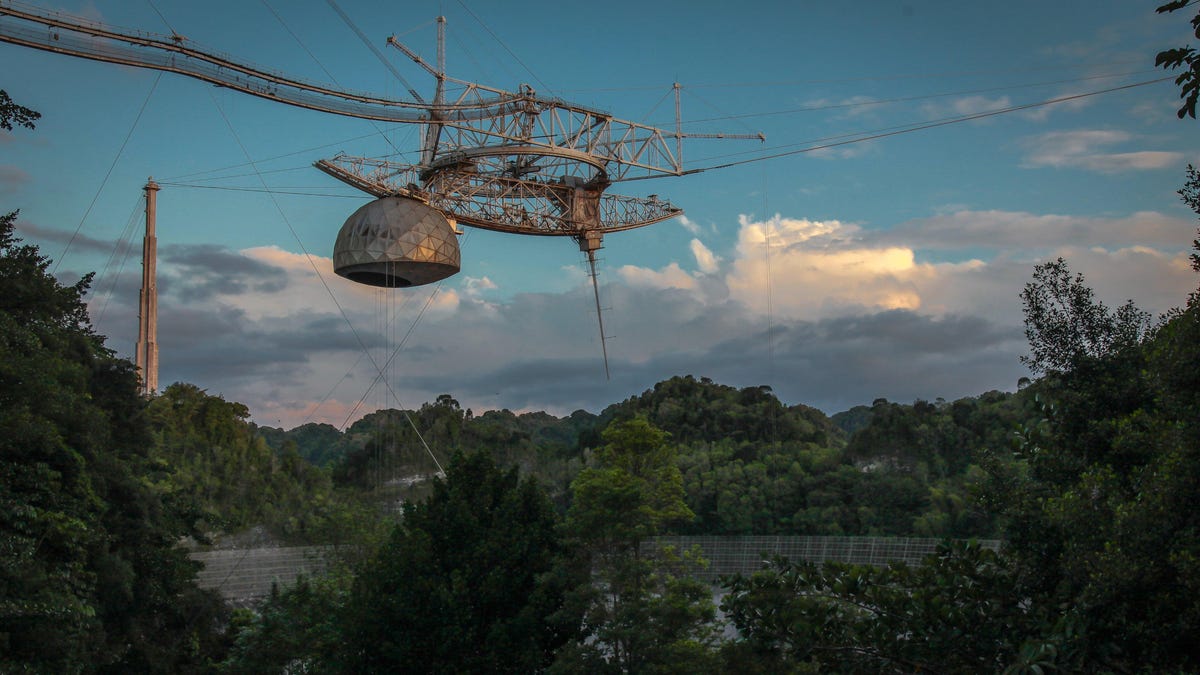Famed Arecibo Observatory suffers more damage as 900-ton platform falls
The telescope, star of a James Bond movie, was set to be decommissioned despite a petition to save it.
The Arecibo Observatory in Puerto Rico has been a science and pop culture icon for decades. A series of tragic events involving broken cables has now been compounded by an even larger structural failure at the telescope. The observatory's massive 900-ton platform -- which was suspended in the air above the dish -- has fallen.
The National Science Foundation announced the overnight collapse on Tuesday. "No injuries were reported. NSF is working with stakeholders to assess the situation. Our top priority is maintaining safety," the foundation tweeted.
The instrument platform of the 305m telescope at Arecibo Observatory in Puerto Rico fell overnight. No injuries were reported. NSF is working with stakeholders to assess the situation. Our top priority is maintaining safety. NSF will release more details when they are confirmed. pic.twitter.com/Xjbb9hPUgD
— National Science Foundation (@NSF) December 1, 2020
Arecibo's famous 305-meter (1,000-foot) telescope dish had already suffered extensive damage from the previous broken cables that had been helped to keep the platform suspended. The NSF decided earlier in November to decommission and demolish the telescope due to safety concerns.
Despite the NSF conclusion, over 36,000 scientists and space fans had signed a Change.org petition asking for the telescope to be repaired and preserved for future generations. The platform's fall makes any chance of saving the telescope even more remote.
While the observatory's scientific achievements in astronomy are its main legacy, it also starred in the 1995 James Bond movie GoldenEye and appeared in the 1997 Jodie Foster sci-fi movie Contact.
"NSF is saddened by this development," the foundation tweeted. "As we move forward, we will be looking for ways to assist the scientific community and maintain our strong relationship with the people of Puerto Rico."


